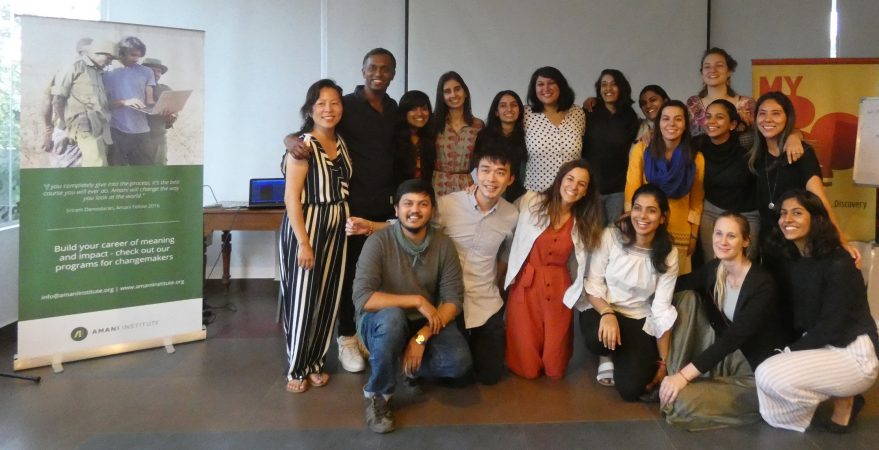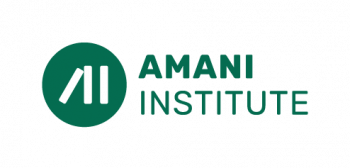By: Roshan Paul, CEO and Co-Founder, Amani Institute
A few weeks ago, I sat watching the final presentations from our class of Social Innovation Management Fellows in India. I was struck by 2 things. First, that in each presentation there was a deep insight, one that had the potential to actually transform the nature of the problem they were addressing.
Our Fellows, from 21 to 40 years old in this class, coming from 7 countries across 4 continents, were presenting the results both of their participation in our career development program more generally but also specifically about their progress on solving a social problem they care about.
In the program, we teach our 8-step Social Innovation framework in which Fellows identify a problem of deep importance to them as an individual, then immerse themselves in understanding the nature of that problem, conceive an idea to address that problem, prototype the idea quickly and re-iterate based on real-world feedback, and then finally design the idea for actual social impact.
Sometimes the presenter was clearly conscious of their insight and had reflected on it; other times they used it almost as a throwaway line or to summarize a slide, without conveying they actually knew the power of what they had learned. There were so many times I wanted to jump up and yell, “Wait! Do you know how powerful that is?”
Here is a selection of some of the more powerful insights:
1. On waste management:
Insight: “When you leave your house, you’re not leaving your home.”
Implication: How might we help people see the world as their home and so take better care of it?
2. On technology
Insight: “It’s not about the technology. It’s about what the user or the beneficiary really needs.”
Implication: How might we go beyond our fascination with technology and look at real impact?
3. On building common ground
Insight: “Empathy is a multiplier”
Implication: How might we bring together people who we currently can’t reach?
4. On Mental health
Insight: “The moment we find our gifts and strengths is when we start to lead a full life.”
Implication: How might we bring a focus on the positive into the mental health field?
5. On understanding the problem
Insight: “Sensing is infinite”
Implication: How might we keep deepening our understanding of the problem even as we act to solve it?
6. On making change
Insights:
i) “At the end of the day, it’s all about action”;
ii). “My monkey mind was getting in the way of my actually doing something”;
iii). “Start small. But just start”;
i.v.) “This can also be about having fun!”
Implication: How might we help people actually take the first step to making a difference?
My second realization was that when you read these insights – say in a blog post like this one or in an article or a book – they may seem interesting or perhaps even wise. But you still haven’t really understood them for yourself. I could give my Fellows a lecture or a set of case studies about each of these insights and they would add to their knowledge. But that only gets you so far. Rather, it is only by actually doing it, by getting their hands dirty, stumbling into conceptual and metaphorical and sometimes even actual dead ends, by trying and, yes, by failing, do they actually start to understand what these insights really mean. And what it takes to actually create change in the world.
At Amani, we are less concerned about whether these social innovation ideas go on to become new ventures (about 15% do) and more about whether our Fellows get enough practice with the framework to learn how to apply creativity and innovation as processes towards problem-solving – thus building the skills and the DNA of a social innovator.
The classroom is never a substitute for real world action, and the best gift we can give our students is to let them try it themselves. If they fail, that’s acceptable and the experience will hold them in good stead in future attempts. And if they succeed, they get to experience the joy behind these words that a couple of the Fellows used at the end of their presentation:
“OMG this is actually working!”
————————–
Interested in improving your ability to create change? Come learn and train with changemakers from all over the world in our award-winning Social Innovation Management program. Next classes begin in February. Apply Now!






